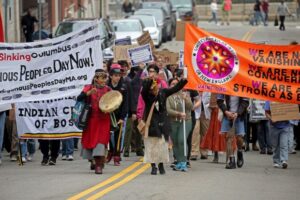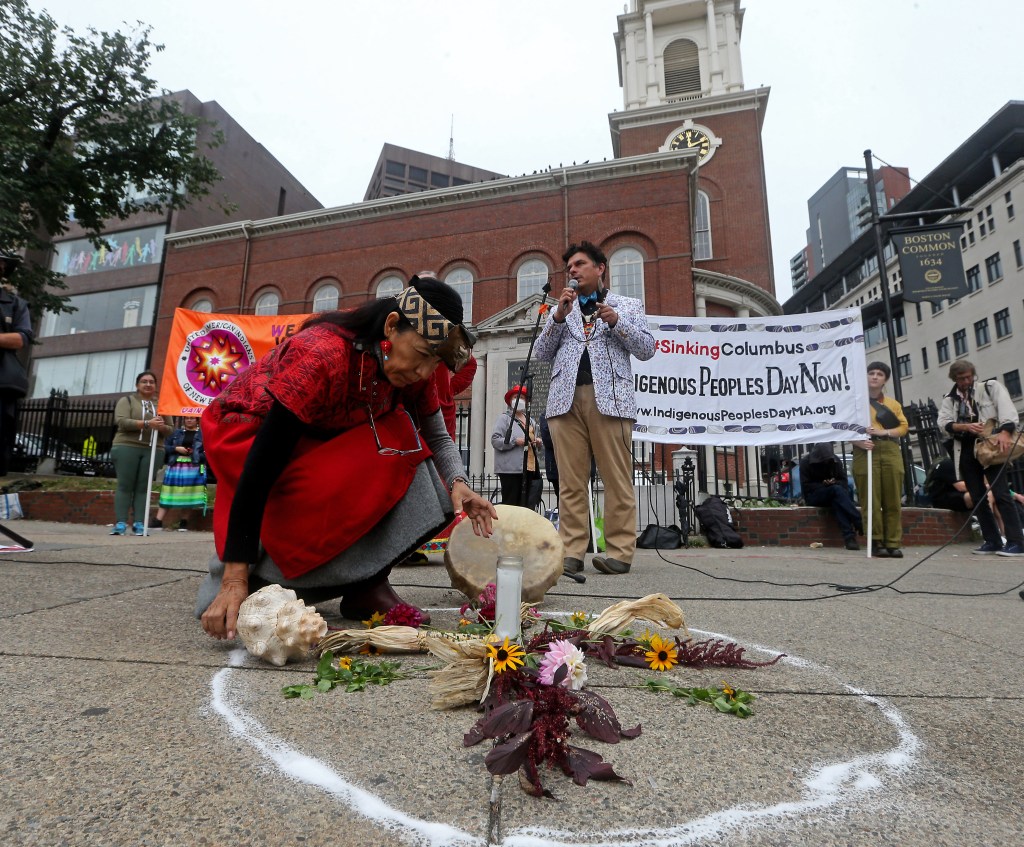As Columbus Day approaches, Massachusetts finds itself at a crossroads, with more than 300 cities and towns preparing to recognize the holiday, while roughly two dozen will celebrate Indigenous Peoples Day. The stark divide in recognition has sparked a contentious debate, with Indigenous people and their allies advocating for a unified approach to honor Indigenous Peoples Day across the state.
Columbus Day, observed on the second Monday of October, has long been a part of American tradition. However, in recent years, there has been a growing movement to reevaluate the holiday’s significance and shift the focus toward recognizing and honoring Indigenous peoples who were historically marginalized and mistreated following Columbus’s arrival in the Americas.

The fact that Massachusetts has such a noticeable discrepancy in how its municipalities commemorate the day has intensified the debate. Indigenous activists and their supporters argue that this divide should not persist and that the state should officially designate the holiday as Indigenous Peoples Day.
Efforts to make this change have been gathering momentum at the State House, with lawmakers considering legislation to establish Indigenous Peoples Day as an official holiday in Massachusetts. Advocates argue that such a move would symbolize the state’s commitment to acknowledging and rectifying the historical injustices faced by Indigenous communities.
This issue has also triggered a broader conversation about the importance of recognizing and preserving Indigenous cultures, histories, and contributions. Supporters of Indigenous Peoples Day argue that this holiday not only addresses historical injustices but also promotes cultural awareness, education, and reconciliation.
The debate surrounding the holiday underscores the intersection of politics, culture, and history in shaping the identity of a state. The ongoing discussions at the State House reflect the diverse voices and perspectives within Massachusetts and emphasize the state’s commitment to addressing the legacy of colonialism and promoting inclusivity and understanding.
As Massachusetts navigates the complexities of this holiday debate, the outcome will not only influence the state’s observance of the second Monday in October but also contribute to the broader national dialogue about the recognition of Indigenous Peoples Day and the reevaluation of historical narratives.





